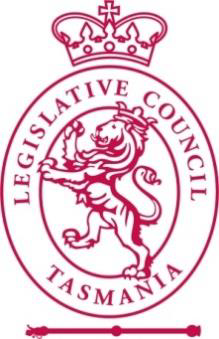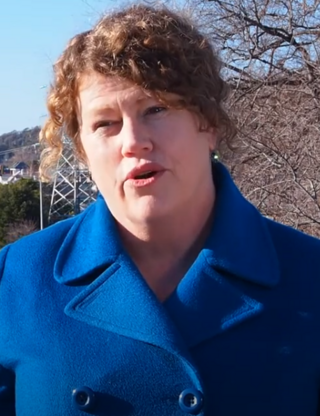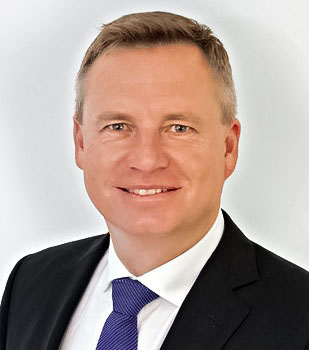
The Tasmanian Legislative Council is the upper house of the Parliament of Tasmania in Australia. It is one of the two chambers of the Parliament, the other being the House of Assembly. Both houses sit in Parliament House in the state capital, Hobart. Members of the Legislative Council are often referred to as MLCs.

Hobart City Council is a local government body in Tasmania, covering the central metropolitan area of the state capital, Hobart. The Hobart local government area has a population of 53,684 and includes the suburbs of West Hobart, Lenah Valley, Mount Stuart, South Hobart, New Town, Sandy Bay and most of Fern Tree, North Hobart and Mount Nelson.

Janie Finlay is an Australian politician currently the Member for Bass in the Tasmanian House of Assembly.
Periodic elections for the Tasmanian Legislative Council were held on 2 May 2009. The three seats up for election were Derwent, held by Labor MLC Michael Aird; Mersey, held by retiring independent MLC Norma Jamieson; and Windermere, held by independent MLC Ivan Dean. These seats were last contested in 2003.

The 2018 Tasmanian state election was held on 3 March 2018 to elect all 25 members of the Tasmanian House of Assembly.
Susanne Lynnette Hickey is an Australian politician. She represented the electorate of Denison from the 2018 state election until her defeat at the 2021 election, sitting with the Liberal Party until March 2021, when she quit the party and became an independent. Hickey is currently Mayor of the City of Glenorchy.

The 2021 Tasmanian state election was held on 1 May 2021 to elect all 25 members to the Tasmanian House of Assembly.

Trumpet of Patriots (ToP) is an Australian political party. It is currently registered to contest elections in New South Wales and the Northern Territory, as well as at federal elections.

Anna Reynolds is an Australian politician who has served as the Lord Mayor of Hobart in Tasmania since November 2018. Reynolds ran in the 2022 Hobart City Council election as the leader of the Your Hobart Independents ticket.

The 2024 Tasmanian state election was held on 23 March 2024 to elect all 35 members to the House of Assembly.
Kristie Joy Johnston is an Australian politician. She was elected as the Mayor of City of Glenorchy in 2014 and 2018 and is an Independent member for the seat of Division of Clark, having been elected in the 2021 Tasmanian state election.
The 2022 Tasmanian local elections were held in October 2022 to elect the councils of the 29 local government areas (LGAs) in Tasmania, Australia. Mayoral and deputy mayoral elections were also held.

The 2026 Tasmanian local elections will be held in October 2026 to elect the councils, mayors and deputy mayors of the 29 local government areas (LGAs) in Tasmania, Australia.
The 2018 Tasmanian local elections were held in October 2018 to elect the councils of the 29 local government areas (LGAs) in Tasmania, Australia. Councils also held mayoral and deputy mayoral elections.

The 2024 Tasmanian Legislative Council periodic election were held on 4 May 2024 to elect three members of the Tasmanian Legislative Council. The seats of Hobart and Prosser were up for election, with a by-election for the seat of Elwick also held concurrently.
This is a list of local government area results for the 2022 Tasmanian local elections.

The 2022 Hobart City Council election was held in October 2022 to elect a lord mayor, deputy lord mayor and 12 councillors to the City of Hobart. The election was held as part of the statewide local elections in Tasmania, Australia.

The 2025 Tasmanian Legislative Council periodic election is scheduled to be held on 3 May 2025 to elect three members of the Tasmanian Legislative Council. The seats of Montgomery, Nelson and Pembroke will be up for election.
The 2011 Tasmanian local elections were held in October 2011 to elect the councils, mayors and deputy mayors of the 29 local government areas (LGAs) in Tasmania, Australia.









